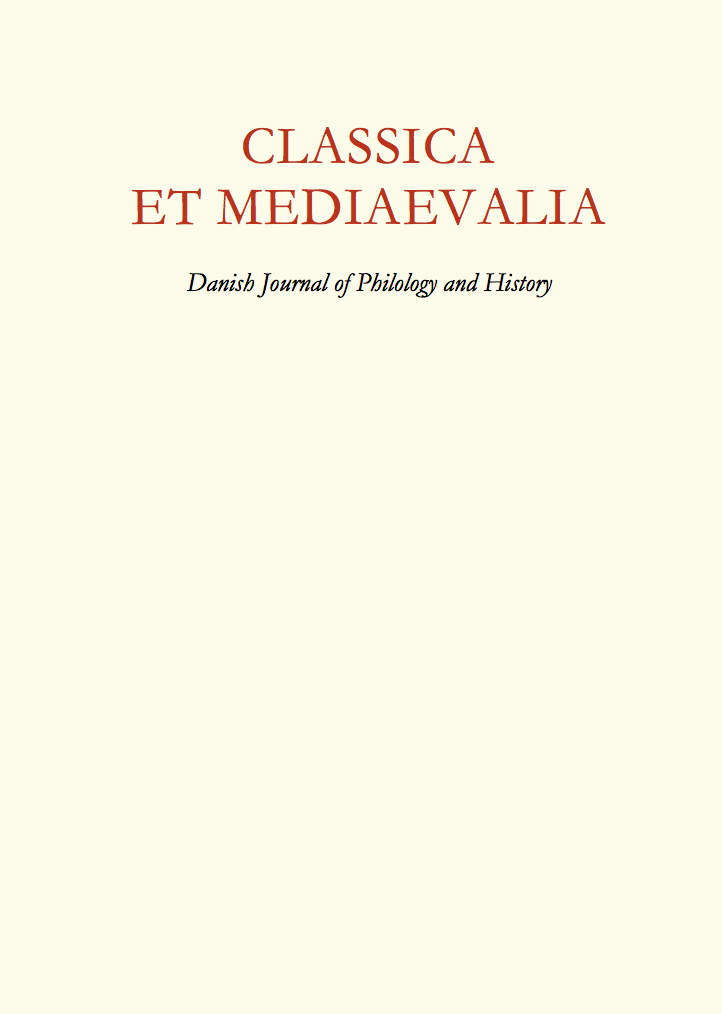The Son of Pharnabazos and Parapita, a Persian Competing in the Olympic Games: Xenophon Hellenica 4.1.39-40
DOI:
https://doi.org/10.7146/classicaetmediaevalia.v68i0.116239Resumé
This article seeks to develop, with some significant change, the arguments put forward by Bresson to show that a Persian boy, the son of Pharnabazos, was allowed to compete in the Olympic Games. It is argued that at Olympia his admission was supported by his older Spartan lover, himself an Olympic athlete, and by the Spartan king Agesilaos who acted as the boy’s guardian. These arguments support the view recently advanced by Nielsen and, at greater length, by Remijsen that non-Greeks were not excluded from competing in the Olympic Games
Downloads
Publiceret
2019-10-04
Citation/Eksport
Roy, J. (2019). The Son of Pharnabazos and Parapita, a Persian Competing in the Olympic Games: Xenophon Hellenica 4.1.39-40. Classica Et Mediaevalia, 68, 119–134. https://doi.org/10.7146/classicaetmediaevalia.v68i0.116239
Nummer
Sektion
Artikler
Licens
Authors who publish with this journal agree to the following terms:
- Authors retain copyright and grant the journal right of first publication with the work simultaneously licensed under a Creative Commons Attribution License that allows others to share the work with an acknowledgement of the work's authorship and initial publication in this journal.
- Authors are able to enter into separate, additional contractual arrangements for the non-exclusive distribution of the journal's published version of the work (e.g., post it to an institutional repository or publish it in a book), with an acknowledgement of its initial publication in this journal.
- Authors are permitted and encouraged to post their work online (e.g., in institutional repositories or on their website) prior to and during the submission process, as it can lead to productive exchanges, as well as earlier and greater citation of published work (see The Effect of Open Access).





